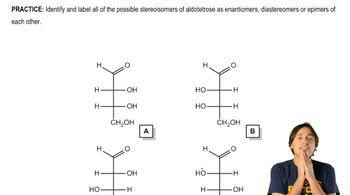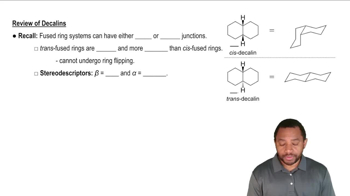Textbook Question
A derivative of chitin, called chitosan, is sometimes incorporated into bandages to aid healing. Propose a reaction to convert the chitin dimer into a chitosan dimer. [Note: The glycoside linkage is unstable in acid.]
 Verified step by step guidance
Verified step by step guidance Verified video answer for a similar problem:
Verified video answer for a similar problem:

